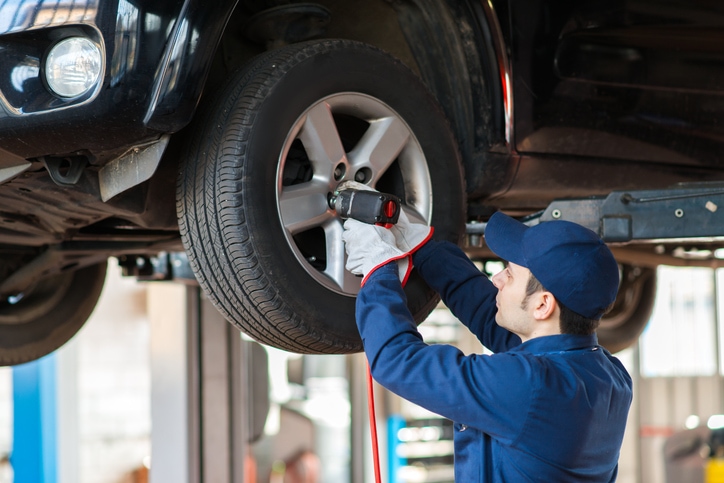All Categories
Featured
Table of Contents
- – 1. Arrange Routine Oil Changes.
- – 2. Screen Tire Pressure and Rotate Tires.
- – 3. Replace and check Wiper Blades.
- – 4. Check Liquid Degrees Consistently.
- – 5. Test and Replace Your Battery as Needed.
- – 6. Inspect Brake Pads and Rotors.
- – 7. Replace Air Filters Frequently.
- – 8. Watch on Lights and Signals.
- – 9. Protect the Paint and Exterior.
- – 10. Stick to an Upkeep Schedule.
- – Final thought.

Regular vehicle maintenance is crucial for every chauffeur, ensuring that your car runs smoothly, safely, and successfully. By regularly examining your lorry's crucial systems, you can prevent costly repairs and avoid unforeseen break downs. Here are some essential automobile upkeep suggestions every vehicle driver ought to understand.
1. Arrange Routine Oil Changes.
One of the most crucial aspects of vehicle upkeep is altering your oil regularly. Most cars need an oil change every 5,000 to 7,500 miles, yet you must check your proprietor's manual for particular suggestions.2. Screen Tire Pressure and Rotate Tires.
Properly filled with air tires add to better gas effectiveness and handling. Low tire stress can cause poor fuel economic climate, unequal tire wear, and even blowouts. Inspect your tire pressure month-to-month using a scale, and keep it at the level recommended in your car's manual. Additionally, revolving your tires every 6,000 to 8,000 miles helps disperse use equally, prolonging the life of your tires and enhancing general handling.3. Replace and check Wiper Blades.
Wiper blades are simple to forget, but they are essential for safe driving in bad weather. Over time, wipers end up being much less effective, triggering touches that lower exposure. Replace your wiper blades every 6 months or sooner if you observe they're no more removing your windshield properly. Quality wipers guarantee better visibility, specifically during rainfall and snow.4. Check Liquid Degrees Consistently.
Your lorry makes use of several liquids to work smoothly, including coolant, brake liquid, power steering fluid, and transmission liquid. Inspect fluid degrees routinely, and consult your owner's manual to understand when they should be altered or covered off.5. Test and Replace Your Battery as Needed.
The battery powers your vehicle's electric components and guarantees trusted beginnings. Severe climate condition can reduce a battery's lifespan, so it is essential to inspect it frequently, specifically if it mores than three years of ages. Try to find indicators of deterioration and tidy the battery terminals if required. Many auto stores use cost-free battery testing, which can be beneficial if you observe slow starts or dim lights.6. Inspect Brake Pads and Rotors.
Your brakes are important to your security when traveling. Worn brake pads can lead to reduced stopping power and damages to your rotors. If you hear squeaking, grinding, or discover a longer stopping range, it's time to have your brakes evaluated. Several drivers discover it advantageous to have brakes examined throughout regular tire rotations or other scheduled maintenance.7. Replace Air Filters Frequently.
Air filters prevent dirt, particles, and various other pollutants from entering your engine and cabin. A clogged up engine air filter can impact your cars and truck's performance and fuel economic situation, while a clogged cabin air filter lowers air top quality inside the vehicle. Replace the engine air filter every 15,000 to 30,000 miles, and check your cabin filter at the very least annually.8. Watch on Lights and Signals.
Fronts lights, brake lights, and turn signals are vital for visibility and interaction when traveling. Routinely check these lights to guarantee they are functioning correctly. Replacing a light bulb is typically fast and low-cost, yet it's necessary to avoid driving with broken or dark lights, which can jeopardize safety and cause tickets.9. Protect the Paint and Exterior.
Consistently washing and waxing your automobile is greater than just an aesthetic procedure; it secures the paint from dust, salt, bird droppings, and UV rays. Gradually, these elements can harm your cars and truck's paint and result in rust. Waxing your automobile every couple of months offers a safety layer that aids preserve its look and worth.10. Stick to an Upkeep Schedule.
Your vehicle's handbook provides an upkeep routine customized to your automobile's needs. Following this schedule aids keep your vehicle in peak problem and addresses possible problems early. Routine examinations, consisting of tune-ups and inspections by a professional, allow you to determine and fix small issues prior to they end up being significant expenses.Final thought.
Maintaining your car doesn't have actually to be complicated or taxing, however it's important for keeping it safe, reputable, and effective. By following these suggestions and remaining proactive with your vehicle's upkeep, you'll appreciate a smoother trip, less unforeseen issues, and possibly higher resale value. Make regular upkeep a priority, and you'll profit each time you hit the road.Table of Contents
- – 1. Arrange Routine Oil Changes.
- – 2. Screen Tire Pressure and Rotate Tires.
- – 3. Replace and check Wiper Blades.
- – 4. Check Liquid Degrees Consistently.
- – 5. Test and Replace Your Battery as Needed.
- – 6. Inspect Brake Pads and Rotors.
- – 7. Replace Air Filters Frequently.
- – 8. Watch on Lights and Signals.
- – 9. Protect the Paint and Exterior.
- – 10. Stick to an Upkeep Schedule.
- – Final thought.
Latest Posts
Explore Auto Services & More: Comprehensive Repair Options from Montclare Auto Repair
Published en
1 min read
Learn About Oil Changes & More: Comprehensive Repair Options from Montclare Auto Repair
Published en
1 min read
Reliable Industrial Roof Providers by Weathercraft
Published en
1 min read
More
Latest Posts
Explore Auto Services & More: Comprehensive Repair Options from Montclare Auto Repair
Published May 26, 25
1 min read
Learn About Oil Changes & More: Comprehensive Repair Options from Montclare Auto Repair
Published May 25, 25
1 min read
Reliable Industrial Roof Providers by Weathercraft
Published May 24, 25
1 min read